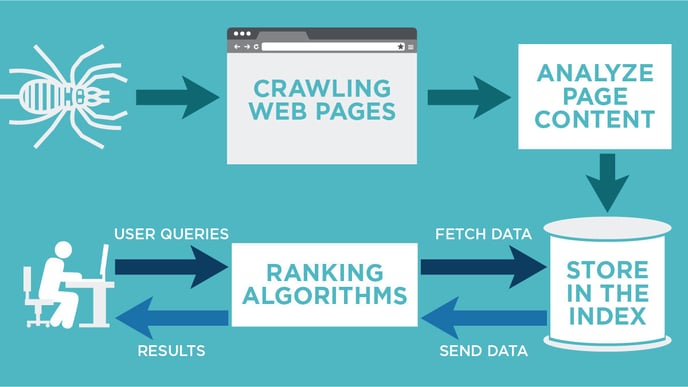Index Status & SEO Best Practices
Here at Go Overseas, we’re always talking about “indexation” to help our providers strengthen their SEO. What is indexation, you ask?
What is Google Index Status?
In literal terms: Search engine indexing collects, parses, and stores data to facilitate fast and accurate information retrieval. Index design incorporates interdisciplinary concepts from linguistics, cognitive psychology, mathematics, informatics, and computer science.
In our terms: An Index Status is what pulls your domain to Google search. Think about it like searching for a book in the library; each book has a specific code which is connected to the catalog when you search by author, genre, etc. The book isn't printed with the code already attached, the library is the one that places it here.

One big benefit of Go Overseas is that your listings are likely to appear at the top of Google’s search results. The more unique content (reviews and interviews) you have on your profile and listing(s), the more likely you are to appear first in Google when someone searches for your organization, reviews from your alumni, and more.
Why does Google Index Status Matter?
In order to have a website rank within Google, your site need to fit the Google index criteria. The same goes for your content on Go Overseas. The better your content fits Google index standards, the more traffic you’re likely to get from our organic users.

- Interpret the user query
- Pull indexed web pages related to the query
- Rank and return those web pages in order of relevance and importance
This is one of the major areas where search engine optimization comes in. SEO helps influence the relevance and importance of those web pages for related queries.
How can I improve my SEO through Go Overseas?
Go Overseas is not only a powerful online referral source, it is also a reputation management tool. We highly encourage you to utilize all that Go Overseas has to offer by helping us increase your indexation ranking. Once you have 3 reviews on a program listing, we're able to index it with Google.
 SEO best practices include:
SEO best practices include:
- Use your own voice
- Create unique content on Go Overseas.
- Avoid copying/pasting information from your website on your profile and listings. It will hurt your own SEO.
- Resist the urge to allow duplicate reviews and interviews
- If you catch it first, let us know if an alumni left a review twice by mistake.
- Keep an eye out for two users who leave the same review.
- Encourage users to leave a unique review for you on Go Overseas.
- Users who copy/paste their reviews across multiple platforms will only hurt SEO for that listing on each platform.
- Encourage your team to leave Staff Interviews
- It's the easiest way to get new content on your pages. You can share the Staff Interview link here.
We hope this helps! For more information check out Adding and Optimizing a Program Listing